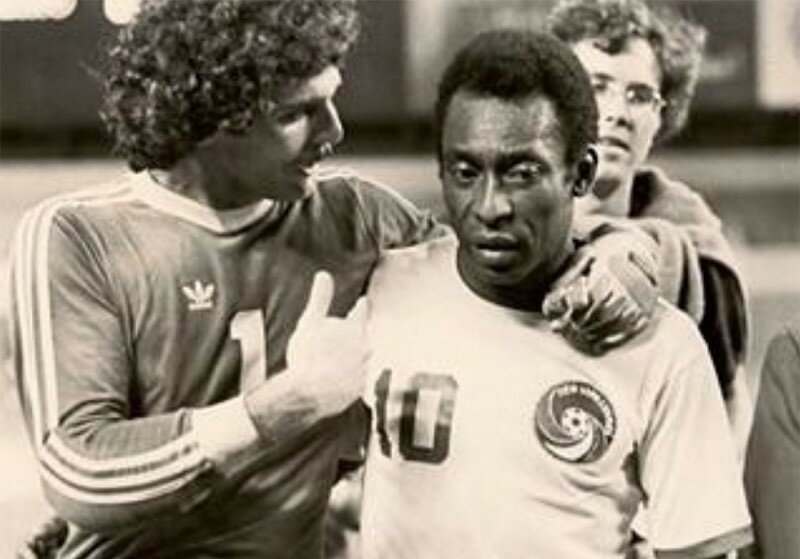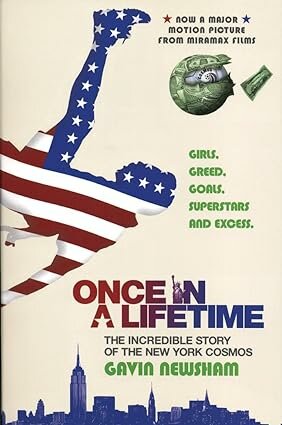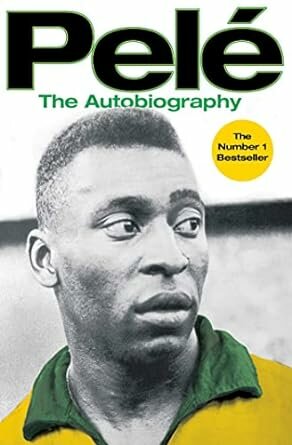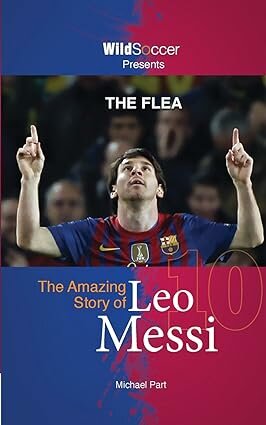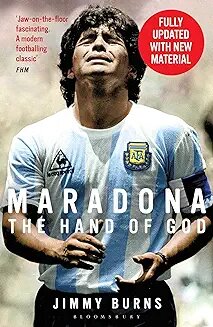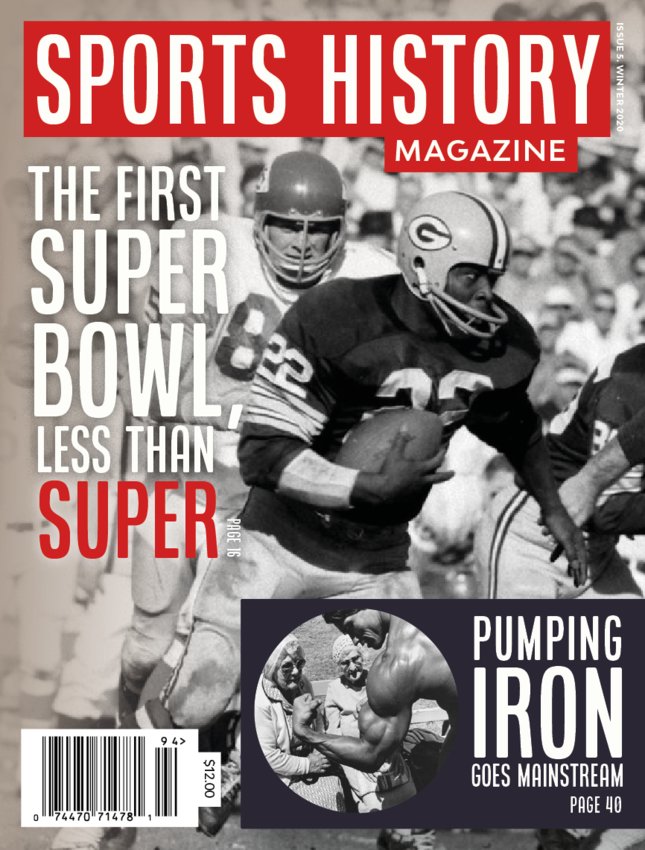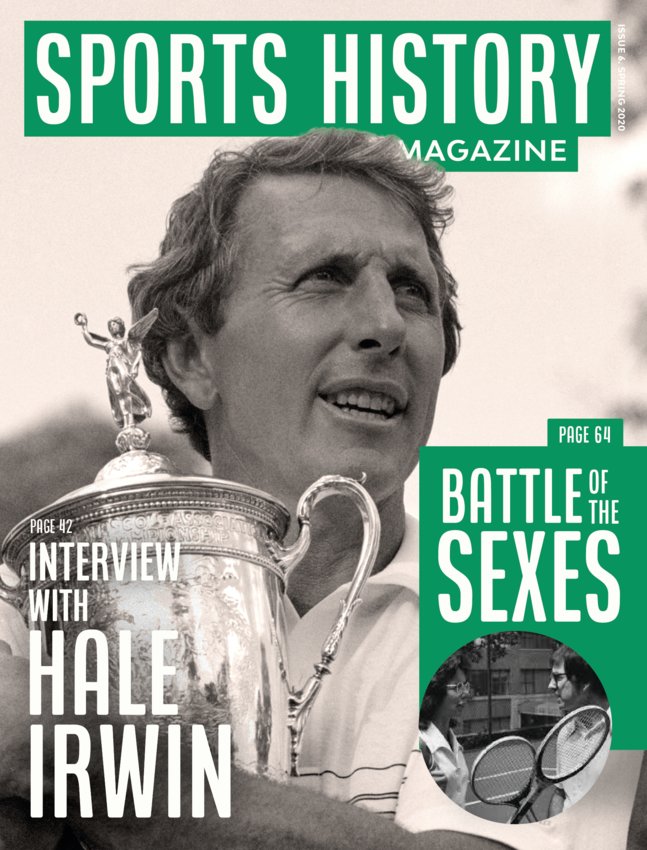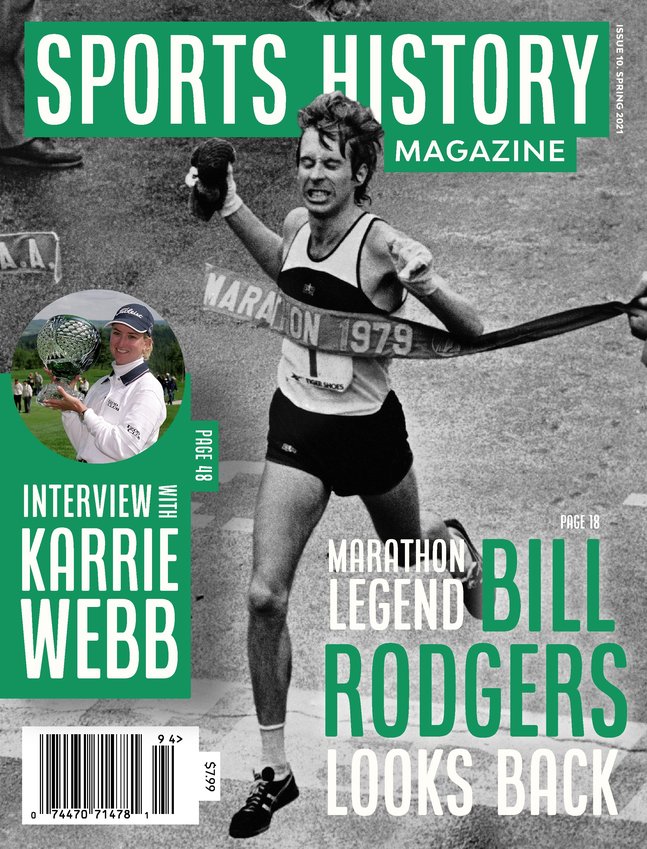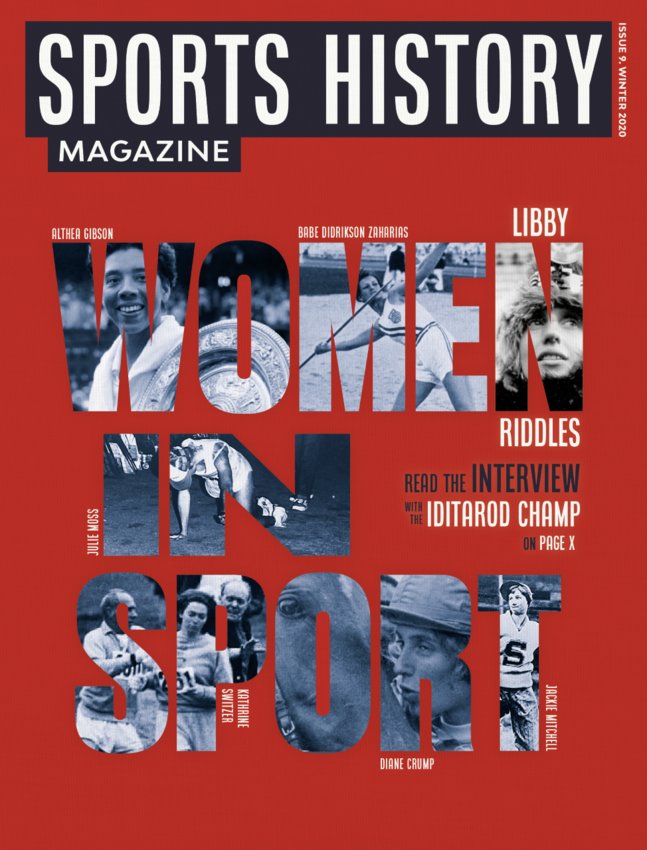Shep Messing, Pele’s American Goalkeeper
Pioneering soccer and sharing the field with legends
Shep Messing spent 7 seasons as goalkeeper in the North American Soccer League, sharing the pitch with legends such as Pele, Franz Beckenbauer, and Giorgio Chinaglia.
The 1970s were a time of growing pains for U.S. soccer and Messing was one of the American pioneers who helped popularize a global game that hardly got a mention at home.
A multi-tooled athlete at Wheatly High School in Long Island, New York, Messing was a walk-on at NYU before transferring to Harvard. He made the Olympic squad and then went pro with the New York Cosmos.
I sat with Shep and asked him about those early days of soccer in America, especially his time with the celebrated Cosmos (1973-74, 1976-77).
What are some of your high school memories at Wheatley? You were quite the all-around athlete
I played American football, basketball, wrestling, and at the same time track & field and baseball. It was really just unbelievable circumstances that I ended up having a place in soccer. I never saw a soccer ball until I was 16.
The soccer coach came up to me one day and said I need a goalkeeper. “I know you’ve never played but you are a shortstop in baseball, you are a point guard in basketball, and you are a little bit crazy.” So, I thought I would give it a try.
I ended up going to NYU and I was a walk-on. I became an All-American the first year. I ended up loving it and because I was an All-American, they invited me to try out for the Olympic team.
After spraining my ankle playing basketball, I begged and pleaded and got a second tryout chance in St. Louis. On my return, I slept in the airport and I’ll never forget waking up and picking up the newspaper with an article on the Olympic team and I had been named to it.
Our Olympic team was a pioneering team with a bunch of kids and it was the first time the U.S. had gone through qualifying and made it to the Olympics.
BUY- 'Once In A Lifetime: The Incredible Story of the New York Cosmos'
Tell us about your experience at the tragic Munich Games in 1972
You go through life always not knowing what to expect. To actually get to the games in Munich was one of the high points in my life.
My son tells me I have two Olympic records, one for most saves ever made in a game, 63 saves– as well as the record for most goals allowed– which was 7 (laughs). Still, the Olympic Games were a dream come true until I got a knock on my door at four o’clock in the morning.
We were right across from the Israeli complex about 25 yards away. I opened my door and there were two German soldiers with machine guns and they said, “are you Shep Messing?” At first, my instinct was to jump the bigger soldier because I grew up in the Bronx.
I didn’t know what was happening but they showed me their police IDs and said ”come with us” and they took all the Jewish athletes on the U.S. team, including Mark Spitz, into protective custody.
So, for 24 hours we were held in protective custody and we were only getting bits and pieces of what was going on… that terrorists had attacked the village. How do you describe the horror to other people if you are Jewish? You can’t describe it.
BUY- 'Pele: The Autobiography'
How did you become Pele’s goalkeeper?
I got home from Munich and found out I had been drafted by a team I had never heard of called the New York Cosmos. I was drafted by the New York Mets too, and I was also accepted to law school.
I started at Fordham law and my father was a lawyer and I told my dad, “I really want to play one more year of soccer, what do you think?” He said, “Shep, the last thing we need is another lawyer…go play soccer!” (laugh).
Before Pele we were getting maybe two thousand, twenty-five hundred fans at the game, and with Pele, two years after he had arrived, we were playing at Giant Stadium in front of seventy-seven thousand people.
New York in the ‘70s was rock & roll and Studio 54. We were also owned by Warner Communications that was run by Steve Ross, so every game there had sell-out crowds of seventy-five thousand people.
We would be whisked away in a limousine after the game to nightclubs in the city. At Studio 54 there was Robert Redford, Mick Jagger and they were all fans of the team. They were at games and coming to the city for the parties after.
And if you know New York in the ‘70s, it was financially broke and there was a blackout, Son of Sam in 1977, and it’s kind of what sports can do, they can take a city on its shoulders and raise the spirits.
I think the Cosmos during Pele’s final year when we were playing to sell-out crowds and winning the championship were bigger than the Giants, or the Jets, or the Yankees, or the Mets.
We were the talk of the town in the New York Post, Daily News, and magazine articles because of Pele and Beckenbauer and Chinaglia. Those guys were rock stars worldwide.
BUY- 'The Flea: The Amazing Story of Lionel Messi'
Was Pele the biggest name in sports at that time?
One day, I went to the locker room in Giant Stadium and there’s Muhammad Ali. He wanted to meet Pele, so because I was one of the few Americans on the Cosmos I was like the social director and I brought him over to meet Pele.
Muhammad was the most humble with his head down, saying to Pele, “It’s an honor to meet you.” They became good friends and Muhammad used to joke with him and say, “Hey, people tell me you’re more famous than me, I don’t believe it!” and Pele would say, “I think I’m more famous but you’re prettier.”
They loved each other, they hit it off. I was good friends with Pele and we had a business together. He used to come to New York all the time to see his grandkids and we would have dinner.
What’s still amazing about the Cosmos is that when I go to Europe I can walk into any stadium in Holland and Germany and England and just walk up to the VIP entrance, tell them I was the goalkeeper for Pele and they bring me right in.
Why were the New York Cosmos so special?
I grew up in the Bronx and we were like the Bronx Zoo…we had a bunch of characters. Chinaglia, God rest his soul, he was my friend but he would get into fights in the locker room.
One day at practice we were scrimmaging and Giorgio has the ball and Pele starts to make a run near him and Giorgio starts shouting at him, “get away from me, you’re drawing a second defender!” I mean, who says that to Pele?
He yelled at Pele and he took a shot from like 45 yards out and Pele put his hands in the air like what are you doing shooting from out there? Giorgio started yelling at Pele,” I’m Chinaglia, I shoot from wherever I want to shoot from!” (laugh).
BUY- 'Christiano Ronaldo: The Rise of a Winner'
What does it take to be a great goalkeeper?
To me, the best you can be as a goalkeeper is a combination of a few things that I always tell kids and even told goalkeeper Tim Howard when he was 17.
You have to have the physical tools- you have to be agile, you have to have good hands, you have to be able to jump, and you have to have good reflexes, but you have to be tough because physically it’s a tough position.
Aside from the physical tools, it’s all mental. It’s all about angles and physics. You have to be able to anticipate the flight of the ball, you have to be able to cut down the angle. You have to be tranquil like you are taking yoga. You have to always be in command of the penalty area.
Who is the greatest soccer player of all time?
For me, it’s always Pele. I was told that I’ve played with and against five of the players who have been called the greatest of all time. Pele and Franz Beckenbauer, I was teammates with. Eusebio and Johan Cruyff, I played against.
But look, Messi, Ronaldo, and Maradona are in every conversation. Still, for me, it is always Pele. He had 360 peripheral vision. It wasn’t just that his vertical leap was 5 inches higher than everybody, he defied gravity and he was able to hang in the air longer than anybody, and he had the ability to head the ball.
Physically, he was beyond belief but again it’s that genius you can’t quantify. He just saw the play developing before it developed, like a Wayne Gretsky in hockey.
BUY- 'Maradona: The Hand of God'
Name some U.S soccer players who have caught your attention over the last few decades
I’ll start with the women first because I am very proud of them and I was one of the first to have women soccer camps and I was actually on the committee that lobbied FIFA for women to have a World Cup in the 1980s.
So, Michelle Akers, Mia Hamm, Julie Foudy, and Briana Scurry in goal. I took so much pride in what they did by winning the World Cup because I knew some of them when they were just first becoming players.
On the men’s side, I liked Landon Donovan because he stuck to his convictions. He didn’t really want to play in Europe, so he played most of his career here.
Tim Howard is a favorite because I knew Tim when he was 18 years old and sitting on the bench for the Metro Stars in New York. He would always come to me for guidance and what a great career he had.
But the goalkeepers are a fraternity, right? Kasey Keller, Brad Friedel, Tony Meola, and Tim Howard are the four that stick out to me over the course of the last 30 years.
You were a pioneering athlete and a respected broadcaster. What are you most proud of?
I’m most proud of what I did for American soccer…at Harvard, the Olympics, and as goalkeeper for Pele. I was proud to be the first American picked out of the college draft and signed by the Cosmos and I was the first player on the team that qualified to go to the Olympic games.
Adam Kluger is Editor-in-Chief of Metropolitan Luxury Magazine. This column is based on his original interview with Shep Messing.
ENJOY OUR CONTENT? SIGN UP FOR OUR FREE WEEKLY NEWSLETTER AND SHARE ON YOUR SOCIAL MEDIA

